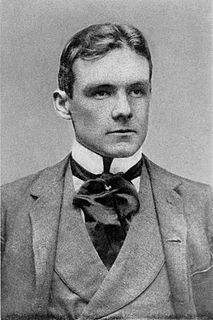A Quote by Richard Harding Davis
No civilized person ever goes to bed the same day he gets up.
Related Quotes
The moment the alarm goes off is the first test; it sets the tone for the rest of the day. The test is not a complex one: when the alarm goes off, do you get up out of bed, or do you lie there in comfort and fall back to sleep? If you have the discipline to get out of bed, you win - you pass the test.
A woman's work, from the time she gets up to the time she goes to bed, is as hard as a day at war, worse than a man's working day. ... To men, women's work was like the rain-bringing clouds, or the rain itself. The task involved was carried out every day as regularly as sleep. So men were happy - men in the Middle Ages, men at the time of the Revolution, and men in 1986: everything in the garden was lovely.
I could tell Hugo was convinced that he would get to walk back up these stairs: after all, he was a civilized person. These were all civilized people. Hugo really couldn't imagine that anything irreparable could happen to him, because he was a middle-class white American with a college education, as were all the people on the stairs with us. I had no such conviction. I was not a wholly civilized person.
A good writer - and I think it's this way with actors too - even if you have two lines, you have to do the same complete work as if you're number one on the call sheet. If you get in an elevator and somebody gets on, rides two floors and gets off, that person has a reality that goes back to when they were born. They have memories, they have people, they have a life. They are doing something right now that the camera is on them in their space. We live in our own close-up all the time.
Let's say someone has experienced a violent trauma or betrayal: a child has been raped by a parent or has witnessed the destruction of someone he loves or has been so traumatized by the possibility of beatings and punishments that he's afraid to act. If the trauma is great enough, that person's life may become frozen, emotionally frozen even though he still gets up in the morning, is busy all day, and goes to bed at night. But there's this empty space that begins to fill with rage, rage toward everyone - the perpetrator, the people in the world who haven't suffered, even toward himself. (174)
































